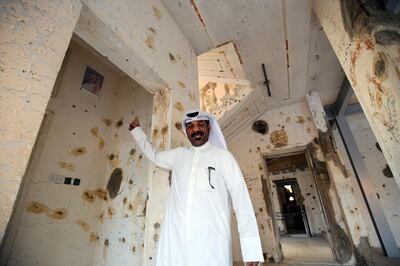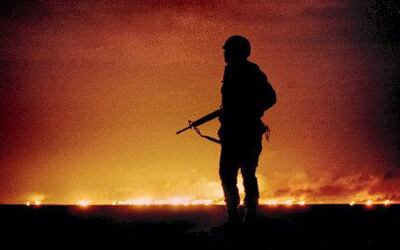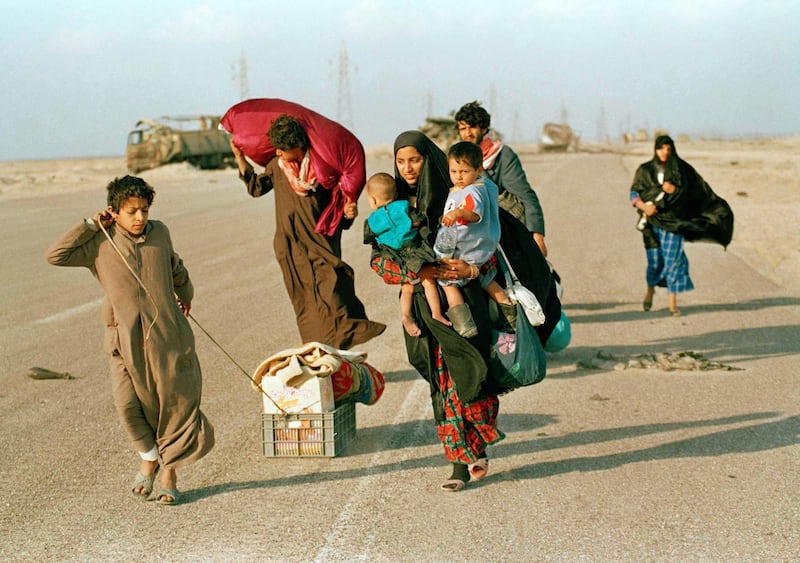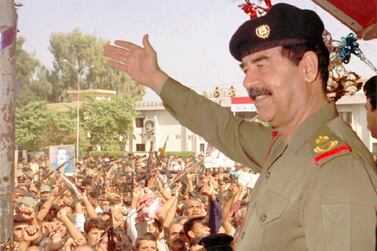Kuwait will on Tuesday receive backing from the UN Security Council to ask Iraq to do more to find the graves of hundreds of citizens and several foreigners who were abducted and killed by Saddam Hussein's forces during the 1990-91 Gulf War.
The move comes 16 years after Kuwait last asked the UN Security Council to intercede.
A statement by the president of the council is aimed at reinvigorating a long-dormant effort to find the remains of 369 Kuwaitis and third-country nationals still missing. Most were sent to jails in Iraq when they refused to co-operate with occupying forces after the late dictator's ill-fated invasion.

Saddam denied all knowledge of the disappeared and frustrated attempts to find them after Kuwait was liberated 28 years ago this month. After he was toppled from power in the US-led invasion of Iraq in 2003, co-operation between Kuwait, a new government in Baghdad and the International Committee of the Red Cross led to the remains of 236 Kuwaitis and other nationals being identified in 2004.
But frustration has grown in Kuwait City at how none of the remains of 369 still missing have since been found. Visits by the ICRC to Iraq in recent years have failed to discover victims' whereabouts and years of political turmoil inside successive administrations in Iraq have also been blamed for stasis.
The issue of the disappeared – considered the most important subject of national interest for Kuwait this year, its second as a non-permanent member of the Security Council – was last raised at such a high level at the UN in 2003.
Tuesday's statement will also call on Iraq to enhance its efforts to return property, including some of Kuwait's national archives, looted during the invasion in 1990.
A draft copy of the statement, seen by The National and expected to be adopted without any dissent, states: “Ascertaining the fate of missing persons and providing answers to their grieving families depend on steadfast commitment, action and the adoption of new and innovative ways to push the issue forward.
“The Security Council notes with regret that there remains 369 cases of missing Kuwaiti and third-country nationals still unresolved and that no human remains have been exhumed since 2004.”
Relations between Iraq and Kuwait have strengthened in recent years. Kuwait hosted an international conference in 2018 that saw $30 billion pledged for Iraq’s reconstruction after a bloody battle to liberate the country from ISIS.
Iraqi President Barham Salih also visited Kuwait in November last year, bringing with him a consignment of documents recovered from the looted archives. That trip, following a drawn out yet still incomplete government formation process in Baghdad after last May’s elections, is being viewed as a favourable sign that Iraq may be able to step up its effort to find the remains of those who were killed.
A source on the Security Council told The National: “The members of the Council are trying to push this issue forward. Kuwaiti families still don't know what happened to their families, nearly three decades after they were abducted.”

During a Council briefing on Iraq last week, Kuwait's permanent representative to the UN, Mansour Al Otaibi said it was important to recognise that his country realised that Iraq in 2019 was not that of 1990.
The 605 people abducted were mostly civilians. Research has established that the numbers included about 120 students, 50 teenagers and at least three nurses. The latter were unjustly taken on account of them having treated wounded Kuwaitis.
Based on testimony from Saddam-era officials, it is thought that many were taken to underground prisons in Baghdad. The captives were never heard from again.
The seven-month Iraqi occupation of Kuwait ended in February 1991, following UN-mandated use of force.






